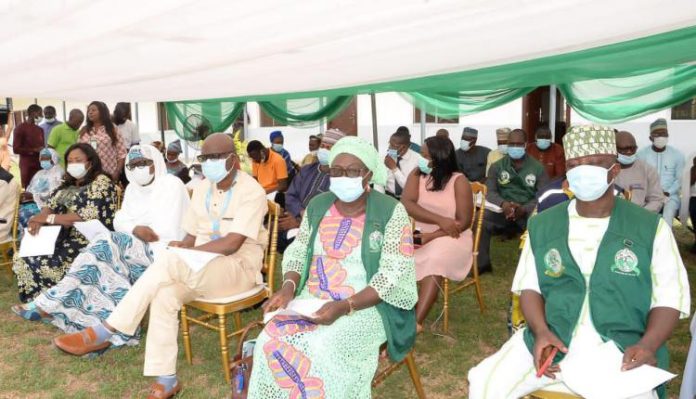The Kwara state government launched mass vaccination campaign against COVID-19 in Ilorin, Kwara state on Tuesday, November 16.
Speaking at the event, the state deputy governor, Mr. Kayode Alabi, who is also the chairman, state task force on immunization, said that the occasion was meant to flag off a renewed commitment to ensure that the effect of the ravaging COVID-19 scourge is minimized on residents of the state.
The deputy governor, who encouraged all and sundry to ensure protection against COVID-19 by getting themselves vaccinated, said that the vaccines have been adjudged to be safe and devoid of serious adverse events following immunization.
“The arrival of COVID-19 vaccine has brought a sigh of relief as we know. Like other vaccine preventable diseases, COVID-19 vaccine will reduce the number of illnesses and deaths from the disease. The Kwara State Government under the leadership of Governor Abdulrahman Abdulrazaq left no stone unturned to see that the introduction of the vaccine in the state suffered no hitch by promptly releasing a counterpart fund to aid the implementation”.
According to the Executive Secretary of Kwara State Primary Healthcare Development Agency, Dr. Nusirat Elelu, “currently, close to 400,000 doses of COVID-19 vaccine (Astra Zeneca and Moderna) have been administered in the state.”
Dr. Elelu, who noted that the state had not documented any serious adverse event following immunization despite the number of people vaccinated, added that the National Primary Health Care Development Agency (NPHCDA) planned to vaccinate at least 50 per cent of the population with the COVID-19 vaccine before the end of January 2022.
The state coordinator of NPHCDA, Princess Deborah Oladipo, disclosed that a total number of 5,891,305 eligible persons have received their first dose of COVID-19 vaccine, representing only 5.3 per cent of the overall eligible population in the country.
Princess Oladipo also added that a total number of 3,252,067 had received their second dose and are fully vaccinated, representing only 2.9 per cent of the overall population of eligible persons in the country.










